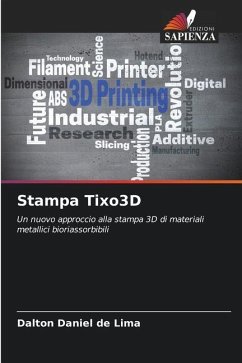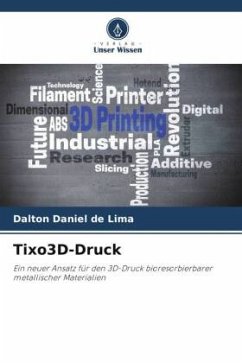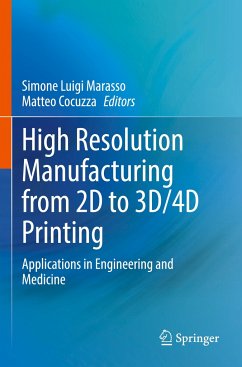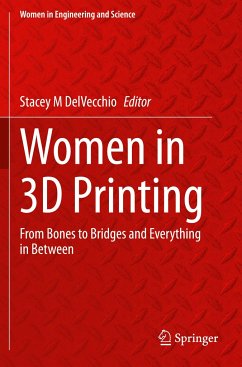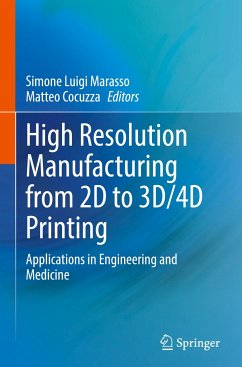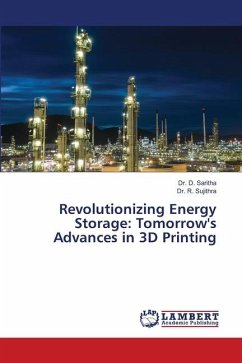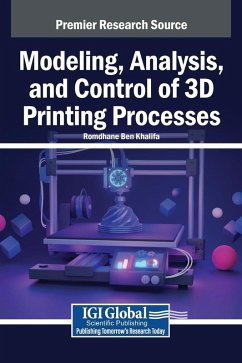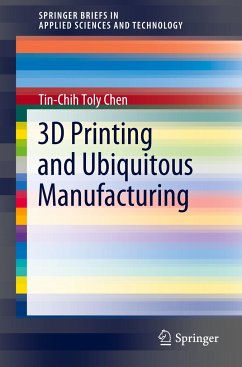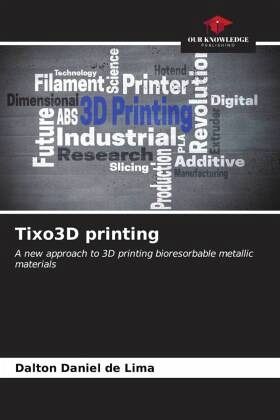
Tixo3D printing
A new approach to 3D printing bioresorbable metallic materials
Versandkostenfrei!
Versandfertig in 6-10 Tagen
45,99 €
inkl. MwSt.

PAYBACK Punkte
23 °P sammeln!
3D printing has revolutionized manufacturing processes since its inception in the 1980s, enabling not only the production of traditional products in new ways, but also the creation of completely new products and the development of previously unimaginable technologies. Today, FDM (Fused Deposition Modeling) printers are widely recognized in additive manufacturing, and are the most common and well established on the market. 3D printing of metallic materials is less widespread due to the need for advanced technology, which increases costs throughout the process chain. This work aims to explore th...
3D printing has revolutionized manufacturing processes since its inception in the 1980s, enabling not only the production of traditional products in new ways, but also the creation of completely new products and the development of previously unimaginable technologies. Today, FDM (Fused Deposition Modeling) printers are widely recognized in additive manufacturing, and are the most common and well established on the market. 3D printing of metallic materials is less widespread due to the need for advanced technology, which increases costs throughout the process chain. This work aims to explore the use of the FDM technique in the production of metallic components, including high-value application areas such as bioresorbable biomaterials. Binary alloys, such as Sn-Bi, Sn-Pb, Sn-Cu and Mg-Zn, were developed as raw materials for 3D printing in the semisolid state. The results obtained led to the conclusion that the 3D thixoimprinting technique is feasible for the printing of metallic materials, representing an innovative process for the fabrication of metallic implants with bioresorbable properties.



